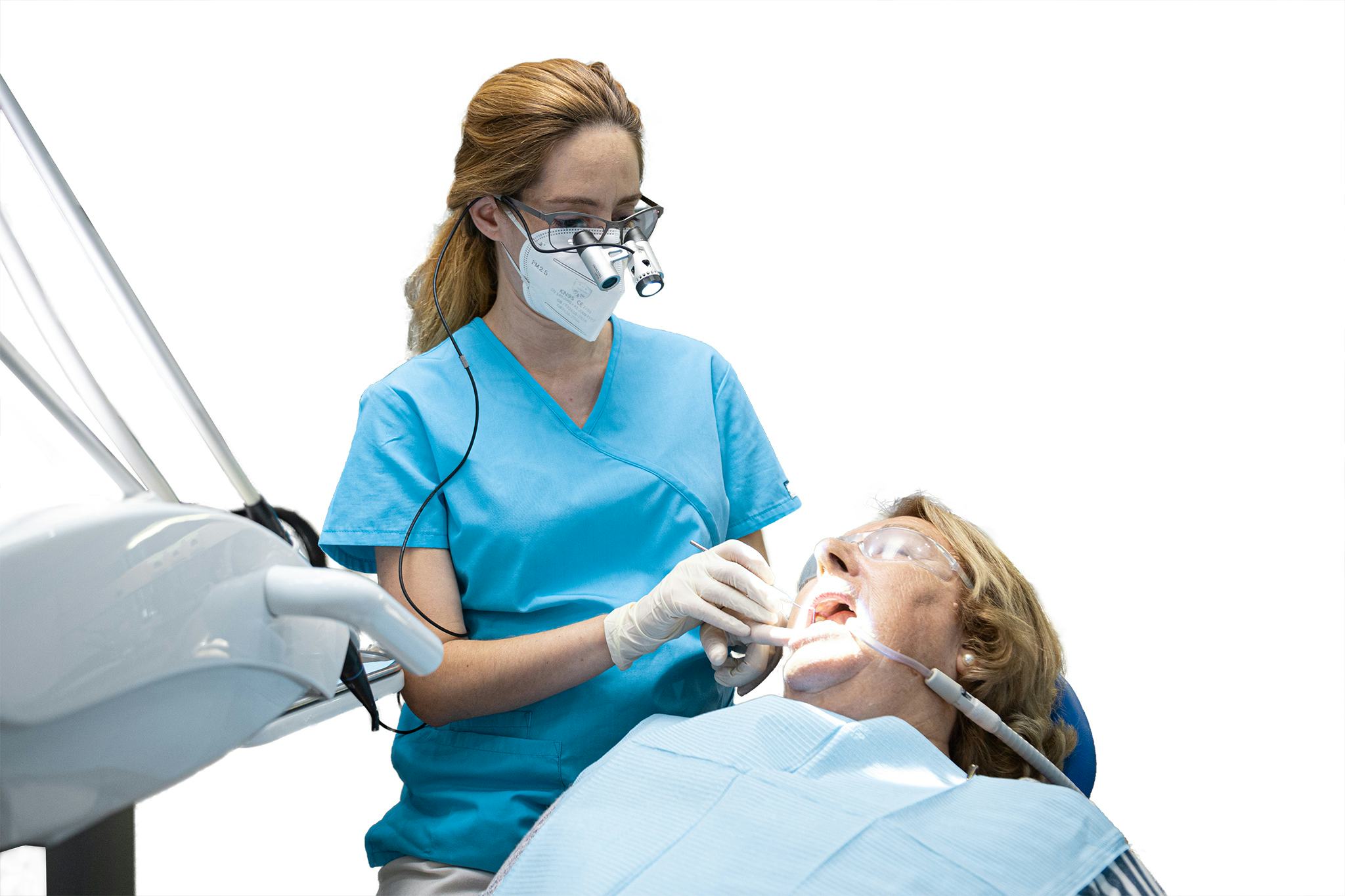
June 30, 2020
Periodontal Diseases
Do your gums bleed?
Are your teeth mobile or they have moved?
Do you have bad breath or bad taste in your mouth?
Gingivitis and Periodontitis are periodontal diseases that occur in about 75% of the population.
What is gingivitis?
It is a gingival inflammation caused by bacterial plaque, very frequent and painless. The entire population is at risk of gingivitis if one is not effective in removing plaque from the oral cavity. The occurrence of gingivitis is more frequent and harmful during pregnancy and puberty, in poly - medicated patients, with dental prosthesis or poorly adapted rehabilitation. When left untreated it can lead to periodontitis.
What is periodontitis?
It is a chronic disease, in which irreversible destruction of dental support tissues occurs. It leads to the loss of teeth, which can affect the entire adult dentition and is more common in smokers, diabetics, patients with cardiovascular disease and can also be a risk factor for Alzheimer's disease. Recent studies show that periodontitis can lead to worsening of diabetes.
Why should periodontal diseases be treated?
When not treated, they move quickly to a situation in which there is irreversible loss of dental support, that is, gums, periodontal ligament and bone. Early treatment prevents the need for dental implants and bone grafts.
Controlling a chronic infection is critical to maintaining overall health. Chronic infections lead to tooth mobility, changes in tooth position and abscesses. They can cause bad breath and tooth sensitivity, increase the risk of carious lesions and can lead to uncontrolled systemic diseases such as diabetes and cardiovascular disease.
How should they be treated?
In our clinic, the Periodontology department will make a diagnosis, through a periodontal status, to establish an individualized treatment plan for each patient.
In an initial phase, the control of plaque is intended, with the patient being instructed in better oral hygiene.
Consultations with the Dentist and Oral Hygienist are aimed at preventing periodontal diseases, preventing tooth loss and restoring oral health.
Treatment begins with the removal of plaque and tartar through scaling, root smoothing, polishing of dental surfaces and application of fluoride to prevent carious lesions and reduce tooth sensitivity.
After this phase, the need for complementary treatments will be determined, such as periodontal surgery to eliminate bags, or mucous-gingival surgery to restore the aesthetics of your smile.
The European Federation of Periodontology recommends a visit to the Dentist and Oral Hygienist twice a year, with the aim of maintaining the treatments performed, prevention adapted to each patient, promoting good oral hygiene habits.
Periodontal health is essential for a long and healthy life.